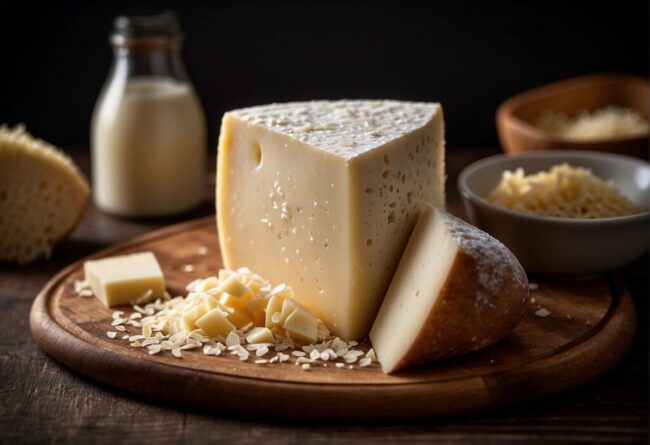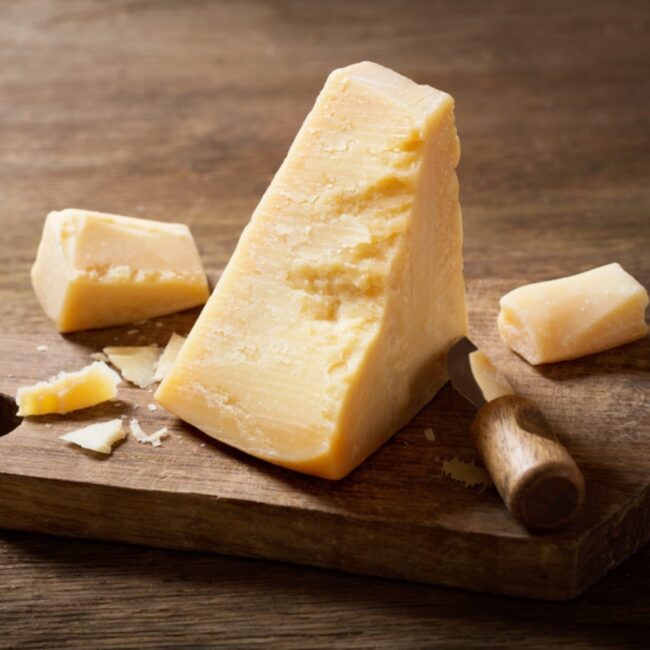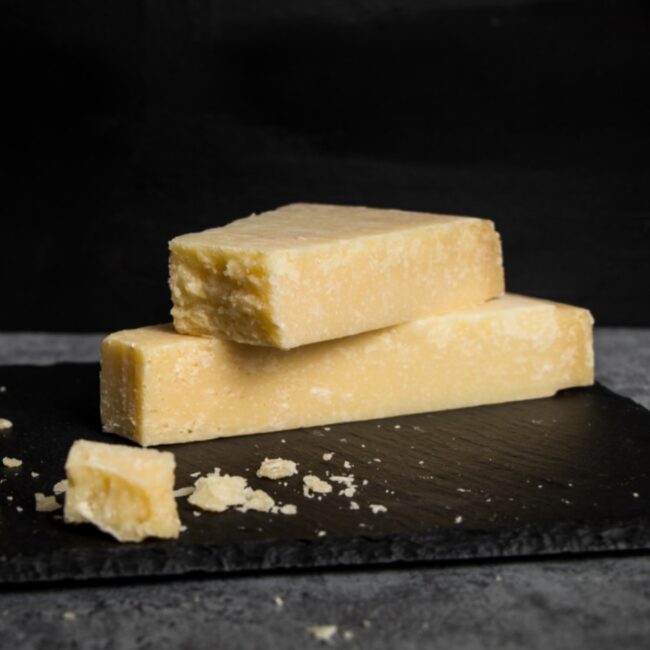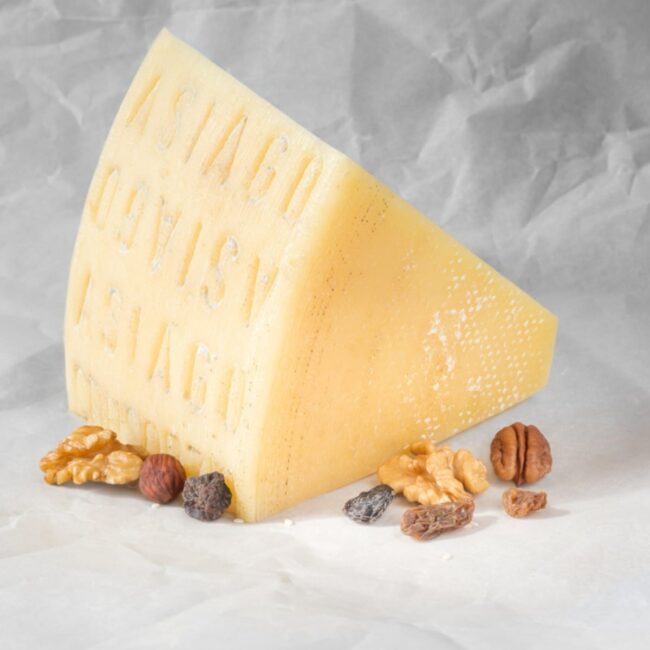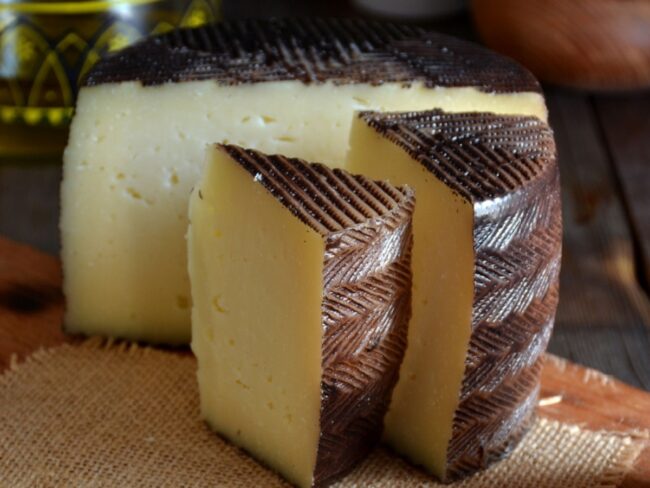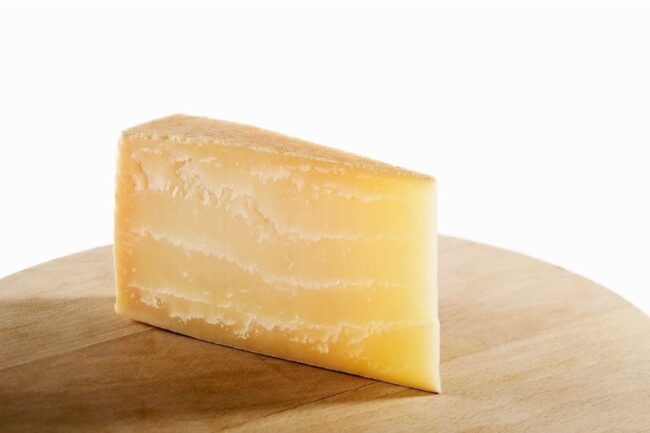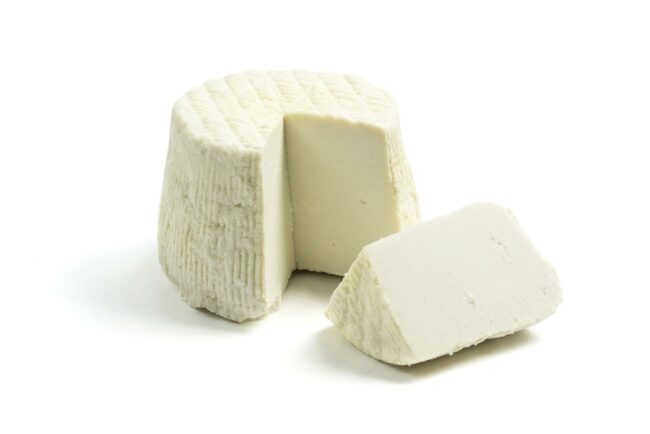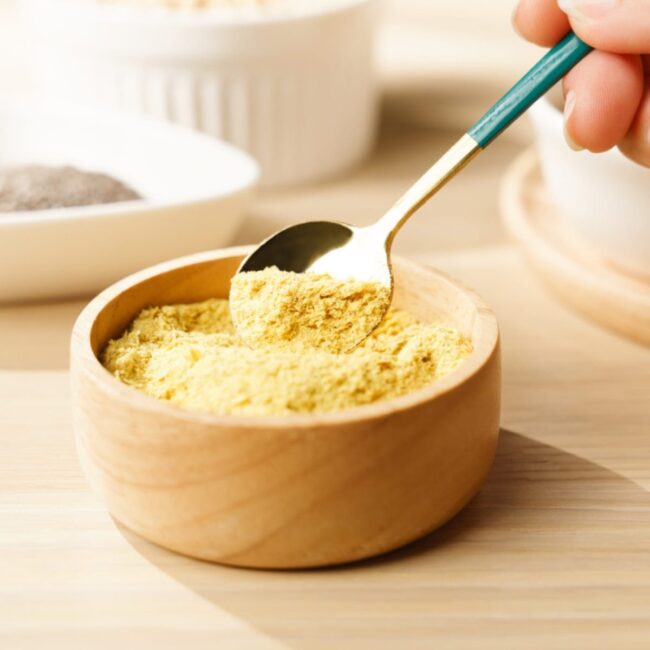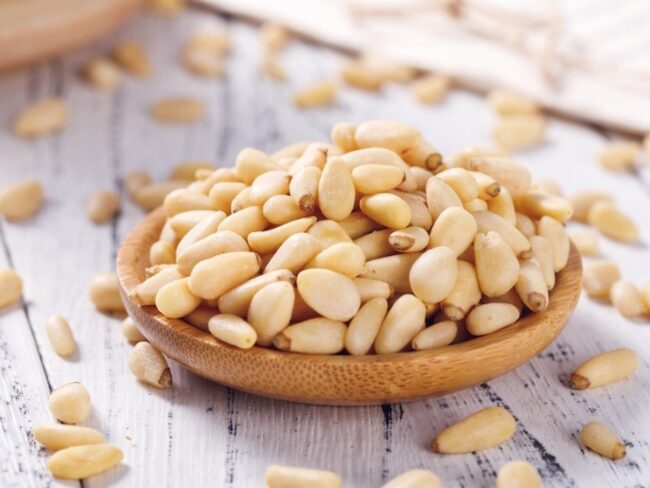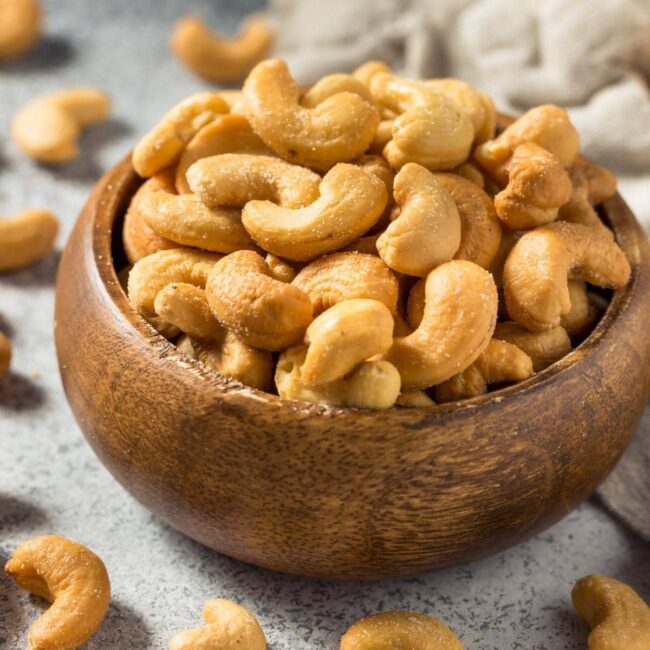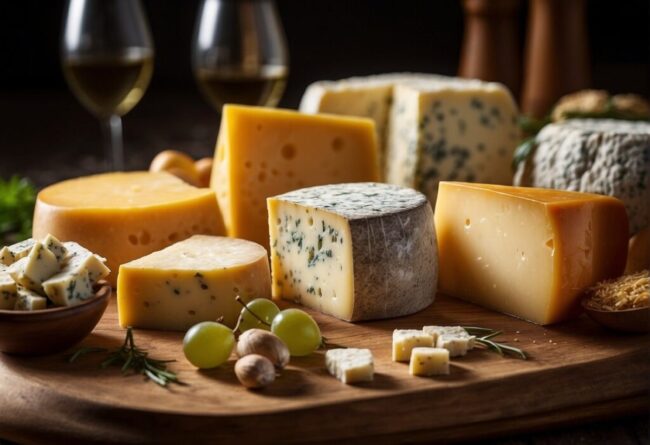11 Sharp Pecorino Romano Substitutes for Authentic Flavor
Pecorino Romano substitutes deliver the same bold, salty kick while offering different textures. Some bring a sharper bite, while others lean toward a creamier, nuttier taste.
The best choice depends on how it's used, grating, melting, or blending into dishes. Many alternatives pair well with pasta, soups, and charcuterie boards.
Some offer a more subtle saltiness for those seeking a milder touch. If you're looking for a substitute, these 11 options are worth considering:
An Introduction to Pecorino Romano Cheese
Discover the characteristics and uses of Pecorino Romano cheese in cooking.
Where and How It’s Made
Pecorino Romano cheese is a renowned Italian product celebrated for its robust and tangy flavor. Hailing primarily from Sardinia, along with Lazio and Grosseto in Tuscany, this cheese derives its distinctive character from sheep’s milk sourced from local pastures.
The grazing habits of these sheep infuse the milk with rich flavors that define Pecorino Romano's unique taste profile. With Denominazione di Origine Protetta (DOP) status, it adheres to stringent production guidelines that preserve traditional craftsmanship and authenticity.
This cheese not only enhances dishes but also represents a deep-rooted culinary heritage cherished by many.
What Makes Pecorino Romano Special
Pecorino Romano is a robust cheese celebrated for its firm texture and distinctive sharpness. The aging process, lasting a minimum of five months, contributes to the intense salty flavor that sets it apart from other cheeses.
Some varieties mature even longer, enhancing their complexity and making them ideal for grating over pasta dishes or salads. Its bold profile adds depth to any meal you prepare, transforming simple recipes into something extraordinary with just a sprinkle.
This versatile ingredient not only elevates flavors but also brings a unique character to your culinary creations.
Nutritional Breakdown
Pecorino Romano stands out as a robust cheese known for its high protein content, crucial for muscle repair and growth. Its mineral profile is impressive, offering calcium, phosphorus, and zinc that are essential for maintaining strong bones and supporting immune health.
Alongside these minerals, the presence of vitamins enhances its nutritional value, making it an excellent addition to your meals. This sheep's milk cheese not only enriches flavors but also contributes significantly to your overall well-being with every bite you enjoy.
Cheese Alternatives for Pecorino Romano
These substitutes bring the same salty and sharp flavor as Pecorino Romano.
Parmesan
Parmesan serves as an excellent alternative to pecorino romano, offering a unique flavor profile that enhances various dishes. Renowned for its nutty and sharp characteristics, this hard cheese adds depth while maintaining the necessary texture in recipes calling for its counterpart.
With origins rooted in Italy, Parmigiano-Reggiano's crumbly structure aligns well with traditional Italian cooking methods. The intense umami notes contribute richness to sauces or pasta dishes without overpowering other ingredients.
Whether grating over a salad or mixing into risotto, parmesan seamlessly integrates into your culinary creations.
Grana Padano
Grana Padano serves as an excellent alternative to pecorino romano, delivering a satisfying grainy texture with its hard consistency. This Italian cheese features a rich yet less intense flavor profile than parmesan, making it versatile for various dishes.
Originating from Italy, Grana Padano adds depth without overpowering your meals. Ideal for grating over pasta or incorporating into risottos, you’ll appreciate how seamlessly it fits into recipes calling for pecorino romano while maintaining that authentic Italian charm.
Perfectly suited for enhancing flavors in both savory and creamy dishes alike.
Asiago
Asiago cheese offers a delightful alternative to Pecorino Romano, featuring an appealing blend of sweet and tangy notes. Depending on its age, this Italian cheese can range from semi-soft to hard, making it versatile for various dishes.
Aged Asiago develops a robust flavor that closely resembles the salty sharpness found in Pecorino Romano. This adaptability makes it suitable for grating over pasta or melting into sauces.
With its rich character and smooth texture, incorporating Asiago into your recipes enhances depth without losing the traditional essence you seek in Italian cuisine.
Manchego
Manchego is a Spanish cheese that stands out as an excellent alternative to Pecorino Romano.
Renowned for its firm and slightly crumbly texture, aged Manchego Viejo brings an intense, zesty flavor profile that can elevate your dishes.
This cheese effortlessly crosses culinary boundaries, making it suitable for various recipes where you seek something distinctive.
Incorporating Manchego into pasta or salads adds a unique touch that's both savory and memorable while enhancing the overall taste experience in every bite with its rich character.
Piave
Piave cheese stands out as an excellent substitute for Pecorino Romano, particularly when aged to Vecchio or Stravecchio stages. With a hard and dense texture, it offers a rich mouthfeel that complements various dishes beautifully.
The flavor profile leans toward the sweet side while maintaining a full-bodied character that can elevate your culinary creations. Originating from Italy, this cheese brings authenticity and depth to recipes calling for Pecorino Romano without losing their essence.
Whether used in pasta dishes or sprinkled over salads, Piave enhances flavors seamlessly with its unique qualities.
Ricotta Salata
Ricotta salata is a firm cheese that offers a milder alternative to pecorino romano while still delivering saltiness. This Italian delight presents a unique texture, making it an excellent choice for enhancing salads and pastas without overpowering other ingredients.
With its dense structure, ricotta salata can elevate dishes by providing both substance and subtle flavor profiles. When seeking versatility in your meals, this substitute shines through with its ability to complement various culinary creations effortlessly.
Whether you're tossing together fresh greens or crafting creamy pasta sauces, incorporating ricotta salata adds depth to your dining experience without overwhelming the palate.
Vegan and Dairy-Free Substitutes for Pecorino
Try these dairy-free options that mimic the bold taste of Pecorino cheese.
Vegan Cheese Products
Vegan cheese products are innovative alternatives to traditional dairy cheeses, catering to those seeking plant-based options. Crafted from ingredients like soy, coconut oil, or nuts, these cheeses often come fortified with essential nutrients for a healthier profile.
When shopping at your local grocery store, consider trying parmesan-style vegan cheeses as an excellent substitute for grated Pecorino Romano in your favorite dishes. This way of enjoying cheese aligns perfectly with a non-dairy lifestyle while still delivering on taste and texture.
Nutritional Yeast
Nutritional yeast is a versatile ingredient that adds a savory, cheesy essence to various dishes while being entirely dairy-free. Renowned for its rich content of B-vitamins, this inactive yeast serves as an ideal cheese substitute in vegan cuisine.
Sprinkling it over pasta instantly enhances flavor, and incorporating it into sauces provides that desired creamy texture without any animal products involved. This unique product not only elevates your meals but also supports nutritional needs seamlessly.
You'll find yourself reaching for this pantry essential time and again when crafting plant-based delights.
Dairy-Free Homemade Blends
Dairy-free homemade blends serve as a satisfying alternative for those seeking to eliminate dairy from their diet. Crafting your own cheese substitute allows you to explore flavors that align with your palate while ensuring health-conscious choices.
By using coconut oil and cashews as the foundation, along with nutritional yeast and sea salt, it's possible to replicate a rich Pecorino-like taste tailored just for you. This approach not only enhances your culinary creativity but also provides peace of mind regarding ingredient quality without unwanted additives found in store-bought options.
Brazil Nuts
Brazil nuts serve as an innovative alternative to traditional cheese, offering a unique texture and flavor profile. Grated Brazil nuts mimic the hardness of Pecorino while introducing a creamy richness that enhances various dishes.
Their natural fats contribute to a satisfying taste experience, making them ideal for plant-based recipes. Incorporating these nutrient-dense nuts not only elevates your meals but also caters to those seeking dairy-free options.
The versatility of Brazil nuts allows you to sprinkle them on salads or pasta for added depth without compromising dietary choices. Perfectly suited for vegan cuisine enthusiasts, they redefine how we think about cheese substitutes in everyday cooking.
Cashews
Cashews serve as a fantastic non-dairy and vegan alternative, transforming into a silky smooth texture that resembles cheese when soaked and blended. By incorporating nutritional yeast along with a dash of sea salt, the flavor takes on an authentic cheesy profile that many will appreciate.
This versatile ingredient not only enhances recipes but also provides essential nutrients like healthy fats and protein. You can easily use this cashew base in dips, spreads, or creamy sauces to elevate your plant-based dishes.
With their adaptability in both savory and sweet applications, you’ll find countless ways to enjoy these nuts without compromising on taste or texture.
Cooking with Pecorino Romano Cheese
Explore various ways to incorporate Pecorino Romano into your culinary creations.
Classic Ways to Enjoy It
Pecorino Romano has a fascinating history, once serving as a staple for Roman soldiers due to its impressive shelf life and rich nutrients. In modern kitchens, this cheese shines when grated over various pasta dishes like carbonara, infusing them with intense umami flavors. It also enhances salads and casseroles by introducing savory notes that harmonize beautifully with other ingredients.
This versatile cheese transforms everyday meals into something special without much effort. Whether you’re whipping up dinner or adding flair to a salad, Pecorino Romano is an ingredient worth having on hand.
How to Grate It Right
Understanding the right way to grate Pecorino Romano can elevate your dishes significantly. The grating method impacts how well the cheese incorporates into meals, influencing both flavor and texture.
Using a fine microplane creates a light dusting that melts seamlessly into hot pastas or sauces, enhancing their richness. In contrast, opting for a box grater yields larger shreds perfect for salads or baked goods where you want more bite and character. Always apply consistent pressure while grating to ensure even results.
Grating this cheese just before serving ensures its bold flavors remain vibrant in your Italian recipes.
Finding Alternatives to Pecorino Romano
Learn about different cheeses that can replace Pecorino Romano in recipes.
What to Look for in a Substitute
Selecting an alternative to Pecorino Romano requires attention to several important aspects:
Always keep these points in mind while tasting before making your final choice. While exact replicas are rare, many excellent pecorino replacements exist on the market today.
Using Cheese Replacements in Your Cooking
Discover how to substitute cheeses in recipes without compromising flavor.
Adjusting Saltiness and Umami
When opting for a milder cheese like Piave or Parmesan, it’s essential to boost the saltiness to replicate the bold taste of Pecorino Romano. Enhancing your dish with sea salt or sea salt flakes can achieve this effectively; just sprinkle a little and adjust based on your preference.
To elevate umami flavors, incorporating garlic powder or onion powder serves as an excellent choice, start small and tweak according to what you enjoy most.
Mixing Flavors in New Ways
When looking to mimic the distinct flavor profile of Pecorino Romano, consider utilizing various ingredients that can replicate its unique qualities.
The sharpness and saltiness found in capers or olives make them excellent candidates for enhancing your dish's flavor. For a satisfying crunch, toasted breadcrumbs serve as an ideal alternative when cheese isn't the focal point.
These simple swaps allow you to enjoy rich flavors without relying solely on traditional cheese options.
Regional Cheeses That Can Serve as Substitutes
Explore local cheese varieties that can be used as alternatives in various dishes.
Spanish and French Cheese Options
Other Italian Cheese Choices
Gourmet Pairings for Cheese Substitutes
When Pecorino Romano isn't available, other cheeses can still enhance your dishes beautifully.

